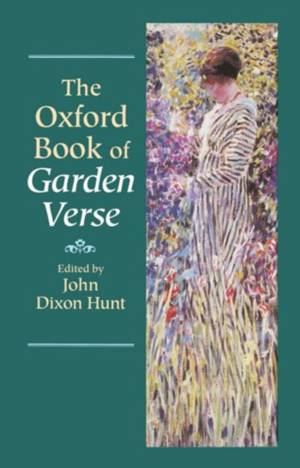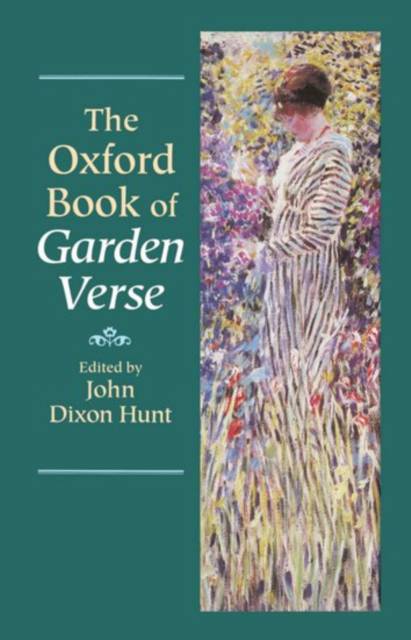
- Afhalen na 1 uur in een winkel met voorraad
- Gratis thuislevering in België vanaf € 30
- Ruim aanbod met 7 miljoen producten
- Afhalen na 1 uur in een winkel met voorraad
- Gratis thuislevering in België vanaf € 30
- Ruim aanbod met 7 miljoen producten
Zoeken
Omschrijving
Gardens have been all things to all people: paradoxical sites of pleasure and pain, safety and danger, art and nature; public spaces and private retreats, places of physical labor and metaphysical reflection. This diversity and versatility have always attracted poets, whose repertory of garden themes on paper matches what gardeners themselves have achieved on the ground.
Now, in The Oxford Book of Garden Verse, the best of this tradition has been gathered. From enclosed gardens and landscape parks to Victorian flower gardens and modern patios, successive historical periods of gardening are mirrored in verse from the Middle Ages to the present day. gardening--from enclosed garden and landscape park to Victorian flower-garden and modern patio--are mirrored in verse from the Middle Ages to the present day. Here is a variety of poetic expression: the metaphorical associations gardens inspire, and the detailed descriptions, both romantic and robust. Microcosms of society--either perfectly maintained or ill-kempt and overrun, where love can blossom alongside the flowers, or withering and decay may presage death--gardens are also sites of real human labor. And in The Oxford Book of Garden Verse, the gardener is celebrated as much as the creation, as are the mundane tasks of weeding, making compost, mowing lawns, and tending the grounds.
In his introduction, John Dixon Hunt discusses certain themes that recur throughout a selection that ranges from Chaucer to Pope, Marvell to Tennyson, Coleridge to Fleur Adcock, W.B. Yeats to Anthony Hecht, and Rudyard Kipling to Anne Sexton. Particularly fertile in modern examples, this delightful anthology is a riot of literary talent to match the most abundant of gardens.
Now, in The Oxford Book of Garden Verse, the best of this tradition has been gathered. From enclosed gardens and landscape parks to Victorian flower gardens and modern patios, successive historical periods of gardening are mirrored in verse from the Middle Ages to the present day. gardening--from enclosed garden and landscape park to Victorian flower-garden and modern patio--are mirrored in verse from the Middle Ages to the present day. Here is a variety of poetic expression: the metaphorical associations gardens inspire, and the detailed descriptions, both romantic and robust. Microcosms of society--either perfectly maintained or ill-kempt and overrun, where love can blossom alongside the flowers, or withering and decay may presage death--gardens are also sites of real human labor. And in The Oxford Book of Garden Verse, the gardener is celebrated as much as the creation, as are the mundane tasks of weeding, making compost, mowing lawns, and tending the grounds.
In his introduction, John Dixon Hunt discusses certain themes that recur throughout a selection that ranges from Chaucer to Pope, Marvell to Tennyson, Coleridge to Fleur Adcock, W.B. Yeats to Anthony Hecht, and Rudyard Kipling to Anne Sexton. Particularly fertile in modern examples, this delightful anthology is a riot of literary talent to match the most abundant of gardens.
Specificaties
Betrokkenen
- Auteur(s):
- Uitgeverij:
Inhoud
- Aantal bladzijden:
- 378
- Taal:
- Engels
Eigenschappen
- Productcode (EAN):
- 9780192141965
- Verschijningsdatum:
- 8/07/1993
- Uitvoering:
- Hardcover
- Formaat:
- Genaaid
- Afmetingen:
- 140 mm x 216 mm
- Gewicht:
- 630 g

Alleen bij Standaard Boekhandel
+ 373 punten op je klantenkaart van Standaard Boekhandel
Beoordelingen
We publiceren alleen reviews die voldoen aan de voorwaarden voor reviews. Bekijk onze voorwaarden voor reviews.








